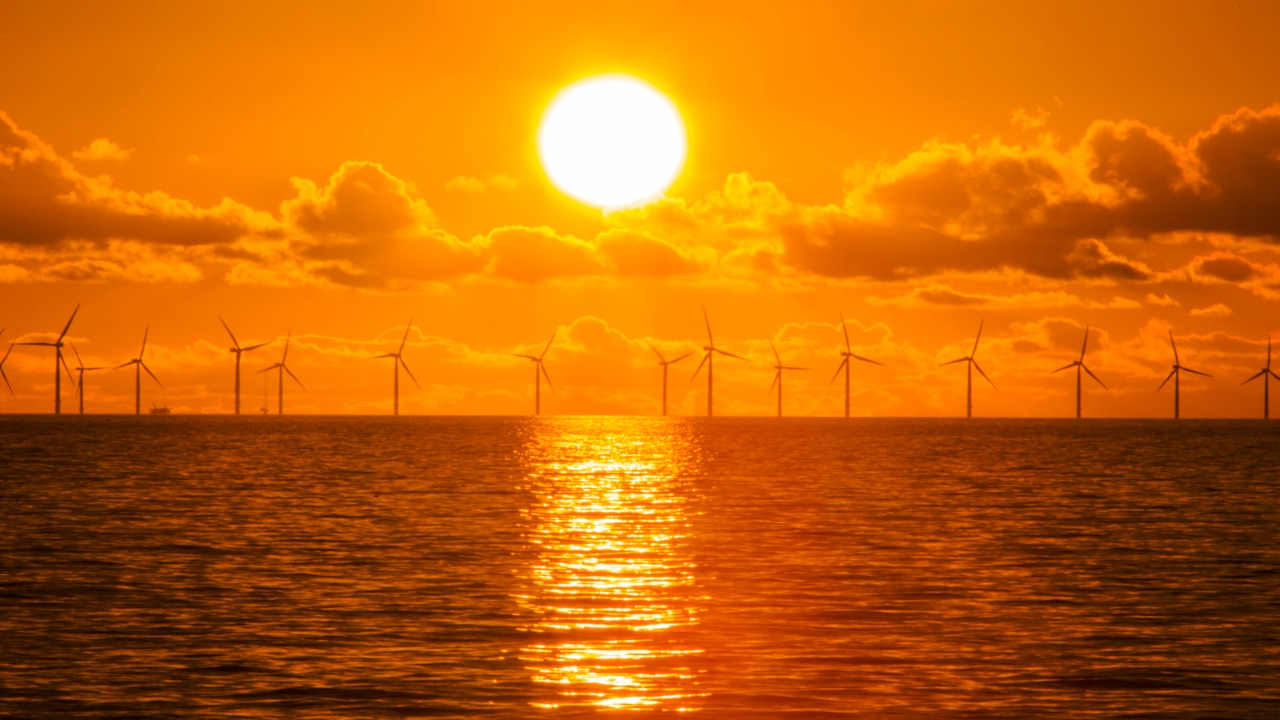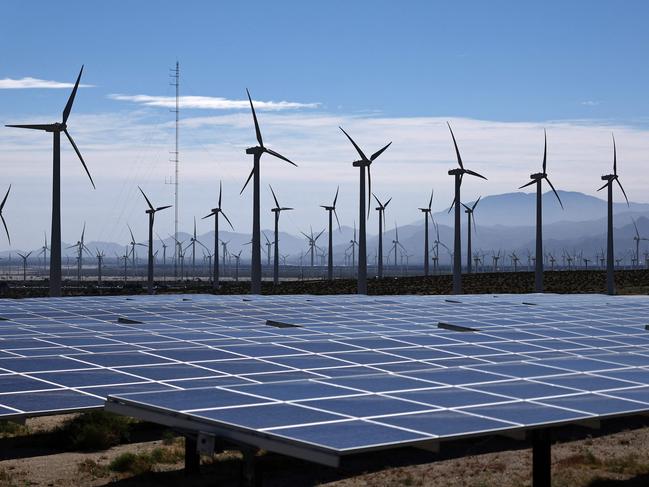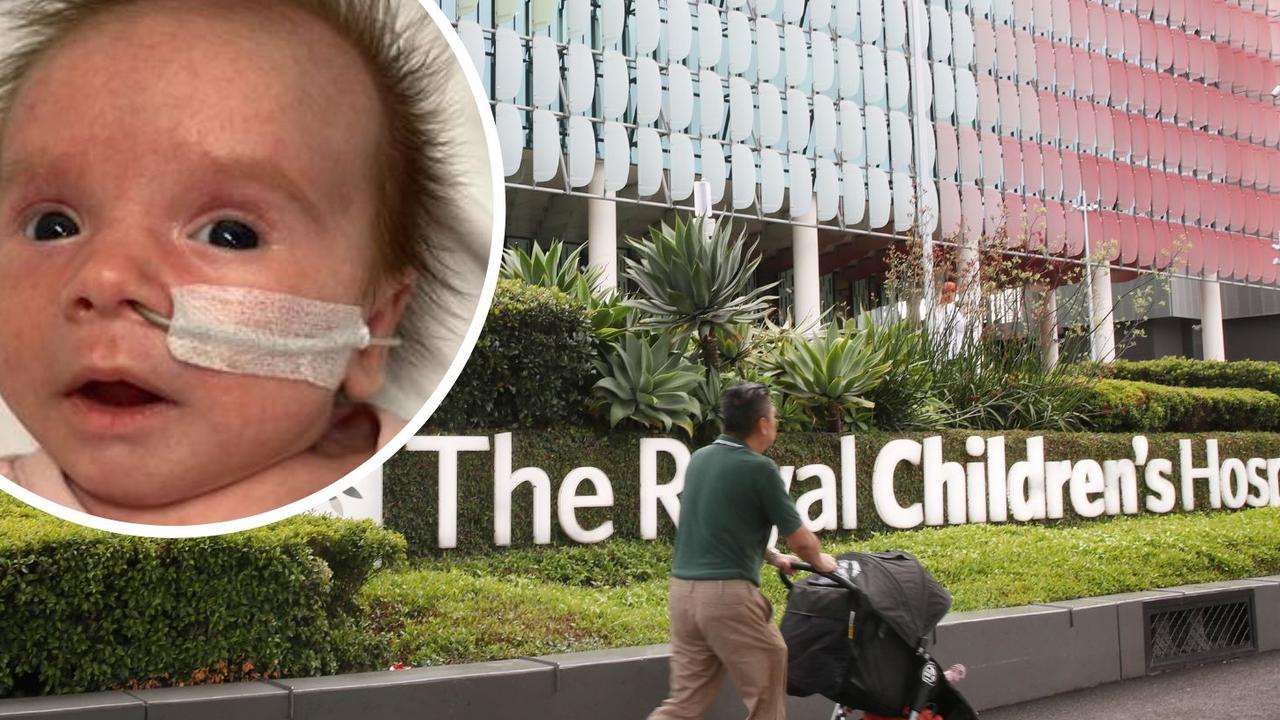Bush Summit 2024: Support for renewables plummets in regions
Support for Australia’s transition to renewable energy has plummeted across most regional communities, exclusive new polling has revealed.

SA News
Don't miss out on the headlines from SA News. Followed categories will be added to My News.
Support for Australia’s transition to renewable energy has plummeted across most regional communities, exclusive new polling has revealed.
And experts are warning that governments and energy companies risk derailing the mega energy transformation if regional Australians are disrespected, as the nation goes through the hardest phase of the transition to date.
This story is part of News Corp Australia’s Bush Summit series, celebrating rural and regional Australia and championing the issues that matter most to those living in the bush. You can read all our coverage here
News Corp Australia’s exclusive Mood of the Bush report, undertaken by SEC Newgate, found 55 per cent of regional Australians feel positive about the transition from fossil fuel-based power generation to renewable energy, including wind and solar.
It is a significant slip from a high in 2022, when 64 per cent of regional Australians felt positive about the transition.
The survey was conducted as part of News Corp’s Bush Summit series, which celebrates rural and regional Australia and champions the issues that matter most to those living in the bush.
The Mood of the Bush report also found one in four regional Australians believed the transition was happening too quickly, up from one in five last year.
States on the eastern seaboard, where a majority of Australia’s energy is produced, are overwhelmingly less positive than Tasmania, Western Australia and South Australia.

In regional New South Wales 56 per cent feel positive about the renewable energy transition now, down from 63 per cent in 2022.
In regional Victoria, just 53 per cent feel positive compared to 66 per cent two years ago.
Regional Queenslanders are the least enthused, with 49 per cent feeling positive about the transition compared to 61 per cent in 2022.
This comes as regional communities are inundated with major renewable projects, including mega powerline projects like HumeLink and VNI West set to go from northwest Victoria into NSW which faced significant backlash.
In Queensland the state government’s two proposed mega pumped hydro projects, near the Sunshine Coast and Mackay respectively, have faced significant opposition on the ground.
Regional Australians also feel increasingly disrespected experts warned, saying it wasn’t enough for energy companies to come in, offer compensation and buy people off with sponsorship of the local footy team.
Dr Amanda Cahill, head of the economic development agency The Next Economy, said the push back in communities was largely against the way development was being done.
“They want to have a lot more say early on about how this happens, and to make sure they actually benefit from it over the long term,” she said.
“There’s this assumption that if you throw money at communities they’ll be fine, but actually it’s all the other costs that come up that need to be invested in.
“How do we manage impacts on roads? How do we make sure local businesses benefit?

“But also what are communities’ expectations around how industry operates so they can start to hold them to account when there are practices that aren’t above board.”
Experts, including Grattan Institute energy expert Tony Wood, said the eastern seaboard states were now in the hardest phase of the renewable transition as communities are faced with the reality of imposing projects like mega powerlines.
And this had been made harder by governments and advocates underestimating how difficult and costly it would be, and falsely selling the idea the transition would be quick.
“It was always going to be slower and more expensive than some politicians pretended it was going,” he said.
“It isn’t turning out to be as cheap as many people promised … and it was never going to be all that easy, and we’ve not done a great job at either.”
Dr Cahill said there needed to be reform at a federal and state level on how projects are approved in order to ensure communities were consulted at an earlier stage.
If this didn’t happen, Australia faced derailing the transition.
“We need to start listening and responding better and if we don’t, we’re just not going to see things built,” Dr Cahill said.
“We’re just going to see a whole lot of hold up happening … and we’re going to see investors start to get nervous, and so then the money is not going to flow.”
Regional Australians increasingly believe the transition to renewable energy is moving too fast, with 24 per cent now feeling that it was moving too quickly compared to 19 per cent last year. A third believe the transition is moving at an appropriate pace.
Originally published as Bush Summit 2024: Support for renewables plummets in regions



